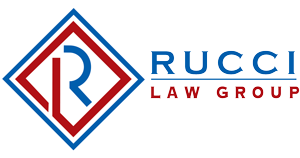
By Marianne C. Cirillo
Fortunately, estate administration is not something one has to deal with very often. But when the time arises, often under difficult circumstances, it is helpful to have a team in place to guide one through the ins and outs of the process. Here are a few basic points we thought would be helpful for you to be aware of.
Did you know…
1. If a Will exists, it must be filed with the Probate Court within 30 days of death;
2. If a Will exists, but the original is not found, it requires certain steps be adhered to with the Probate Court. Without the original Will, the two attesting witnesses need to be located and an updated affidavit needs to be signed by the original witnesses to accompany the copy provided for submission;
3. Given the current Connecticut Estate Tax exemption rate ($9.1 million in 2022), even if no estate taxes are due, Estate Tax documents must still be filed in the state within six months of death to obtain a Release of Lien and Certificate of No Tax Due in order for an estate to be officially closed;
4. Even if a home is jointly owned, a release of lien and notice must be filed on the land records to record the transfer of ownership to the surviving spouse to create the proper chain of title;
5. An estate can be structured to completely avoid going through probate.
In addition, estate administration can be impacted by actions taken or neglected in the estate planning process. Here are a few pitfalls we have come across.
Common Pitfalls to Avoid in Estate Planning
1. Estate planning may not correctly anticipate the spouse who ultimately is the first to die, resulting in unintended estate plan consequences;
2. Incorrect, outdated, or non-existent designated beneficiaries on 401(k)s, IRAs and life insurance policies may result in either unintended parties inheriting these assets, or assets going into the estate by default, therefore losing the favorable tax deferred benefits that could have been enjoyed by properly identified designated beneficiaries;
3. Overuse of Transfer on Death designations can unintentionally defeat the distributions specified in the Will;
4. Divorce decrees may not encompass every asset. Beneficiaries should be carefully reviewed, as failure to update designated beneficiaries may result in unintended consequences;
5. Motor vehicle registration is frequently overlooked in estate planning, as individuals may have car or boat titles in only one name. This could result in a simple estate being subject to a more lengthy probate process depending on the values involved;
6. Timeshares may or may not be subject to the probate process depending on how they are initially acquired, as real property through a deed, or personal property, through a percentage interest in a corporation. Consideration of this asset ahead of time can simplify the probate process and transfer after death;
7. Limited Liability Corporation (LLC) interests are viewed as personal property in Connecticut, and even if owned 50% with a spouse, will still be an asset subject to the probate process; and,
8. Transfer and ownership of guns are strictly controlled in CT. The ability of an unlicensed executor to transfer or dispose of guns or firearms is severely limited. Taking proper steps ahead of time is important to effectuate the orderly transfer of these assets and eliminate the potential for the executor to be subject to liability in the performance of his or her duties.
We work with clients at every stage of the estate planning process and work closely with executors to help them manage the estate administration and estate settlement. Our team is available to answer any questions you may have. Please contact Marianne C. Cirillo or Michele D. Gartland or email us at [email protected].
